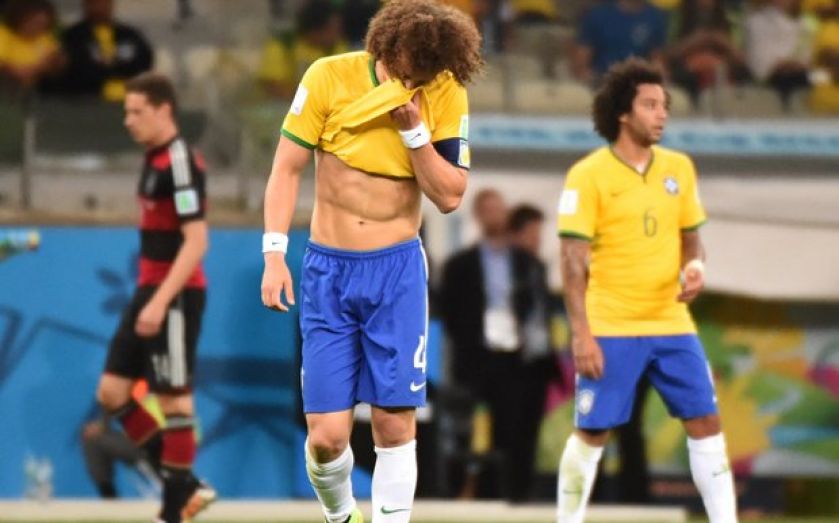Brazil’s World Cup woes expose a far more worrying economic reality

The dream is over in Brazil; the illusion shattered. Despite President Dilma Rousseff’s claims that this would be the World Cup of all World Cups, for Brazilians it is now seen as the disgrace of disgraces.
The national team’s hammering at the hands of Germany is likely to refocus attention on the tournament’s exorbitant cost – around $12.7bn (£7.4bn), roughly 0.6 per cent of GDP. Nearly a third of the budget was spent on stadia, some of which will see little to no use after the World Cup, and the construction works were beset by delay and disaster. A more perfect symbol of the “Brazil cost”, and the country’s woeful record of underinvestment in recent years, would be hard to find.
Yet while national team coach Luiz Felipe Scolari has gamely taken the blame on his own shoulders for the country’s footballing misfortunes, Rousseff seems blind to the economic costs of her policies. Government intervention in almost every market has severely skewed incentives, resulting in years of underinvestment. Investment in Brazil was just 18.5 per cent of GDP in 2013, compared to around 25 per cent for Latin American peers, 35 per cent in India, and 47 per cent in China. This is manifesting in persistently high inflation, despite interest rate hikes (to 11 per cent, from 7.25 per cent in April 2013) and government price caps.
This should not be surprising: with the prospect of arbitrary caps on the price you can charge, why invest? How can you make long-term decisions in an environment dominated by short-term populism?
The electricity sector is a prime example. Underinvestment in generation and distribution, and a recent drought, saw the cost of electricity rise to the point where a number of manufacturing firms found it more profitable to sell their electricity back to the grid than produce. Forecasts for 2014 growth are being slashed across the City.
Meanwhile, fiscal populism is undermining the country’s credit rating, and will mean severe cutbacks are needed after the election. Standard & Poor’s cut Brazil’s sovereign debt rating earlier this year to BBB–, perilously close to “junk” status. The downgrade was driven by concerns over fiscal slippage and poor execution, so naturally Rousseff has since boosted welfare spending and increased state-subsidised lending.
Cynical politicking is hardly surprising ahead of October’s general elections of course, but the strain on Brazil’s finances risks becoming intolerable, especially as growth slows.
Yet things could be so different. Brazil has many of the ingredients for success: a young, educated workforce, some well-performing corporates, and abundant resources. History has shown that the country can, grudgingly, reform, as under former Presidents Fernando Cardoso and the early years of the Lula administration. Opposition candidates Aecio Neves and Eduardo Campos have expressed a willingness to pursue reform. But whoever wins October’s election will have much to do before Brazil is turned around – there is no quick remedy to years of poor policy.
Still, with no signs that Rousseff will be changing her policy stance, the hope must be that the ending of the World Cup dream also helps Brazilians wake up from their economic nightmare.